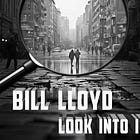'60s Sunshine Pop Revisited
GUEST POST: Jordan Oakes (Yellow Pills Magazine)

Sunshine pop is an evocative ‘60s-rooted subgenre that takes the Pacific Ocean blueprint of Pet Sounds-era Beach Boys and adds contemporaneous flavors of folk rock, soft-psychedelia and Baroque pop.
It’s precision-designed to evoke a day on the beach, a lingering Laguna sunset, or a romantic walk along the shoreline captured in a caramelly (Carmel-y?) soft focus. It encapsulates a mythical California in which the biggest problem of the day was where to park your hotrod.
Of course, the bands aren’t always from California.
Jokers Wild—not to be confused with a British band of the same name and time—hailed from snowy Minneapolis. They spiked their soft pop with the sort of garage rock psychedelia typical of other Northern-US groups like the Amboy Dukes.
There are some eye-opening Nazz-like riffs, a decent cover of the Easybeats’ “Good Time” (with which it’s nearly impossible to go wrong), and stray bits of rock bluster and wah-wah guitar. If Jokers Wild had a good producer and the chance to record an album proper, they might have achieved commercial parity with some of their more famous contemporaries.
The two-LP Step Outside Your Mind (Sundazed) contains tracks from an unfinished album, three of their singles, and enough unreleased goodies to fill a garage.
At its best, Outside Your Mind is tied with The Gordian Knot, who formed in Mississippi, and were actually sort of discovered by Nancy Sinatra at one of the many Hollywood parties at which they were hired to entertain.
The Gordian Knot’s self-titled 1968 album (Sundazed) is nothing less than a soft-rock primer. Airy Association-esque harmonies, classy production flourishes (thanks to the dependable Val Valentin) and a variety of lead vocalists all work together to give the record a subtle sense of variety.
But they don’t throw away the rulebook. The quintessential “We Must Be Doing Something Right” could be the poster song for the entire sunshine pop revolution.
With Sandy Salisbury, the stakes are higher. He’s the lone solo exemplar (of this batch) doing Sol-shine pop—in mono no less; and the only Californian.
Mellow as Sunshine (Sundazed) is a no-frills title, which warms you up for a great experience. Formerly a member of The Millenium, the gold standard for soft-psych, Salisbury can’t help but evoke that group’s legendary Curt Boettcher. Sometimes his voice reminds me of George Harrison, too, but Salisbury, in these demos, carves out his own niche. Not that there aren’t influences and reference points.
You’ll notice ethereal Beach Boys harmonies, a dash of Emmit Rhodes-y homieness (maybe even first-album McCartney ), and a gentle, blood pressure-lowering cadence that lasts throughout the album.
It really doesn’t get much better, soft-pop-wise, than “Holly in the Summertime” and “Everyone Should Be in Love.” Salisbury is a special songwriter, and these “lost” tracks have classic hooks, clever lines, and not one sinker. They’re buoyant mini-masterpieces just waiting to be heard.
The Cyrkle are known for two great ‘60s hits, “Red Rubber Ball” and “Turn-Down Day.” Almost 60 years later, they, amazingly, have a brand new album out (this one is a CD), and it’s a stunner.
I admit I was a skeptic at first. The first couple songs are sweet and catchy, but sound more inspired by Buddy Holly than their former sunny selves. But with some added surf harmonies and bubbly, vibrant guitar, the band begins to grab you.
By the fourth song or so, you’ve arrived at the conclusion it might be the best Cyrkle album yet. In fact, I can’t instantly think of another example of a reunited sunshine pop band that, 60 years later, could pick up like this, exactly where they left off. Revival (Big Stir) is more than the title implies. It’s music that doesn’t need to be revived; merely revisited. That’s exactly how it’s done.
The Cyrkle, despite the members’ ages, are anything but square.
Originally from Pennsylvania, they were literally far from being beach bums, too, but their songs created their own beach scenery, the tropic optics are in the lyrical imagery. Many “oldies” bands are famous for singing the same old song, often in an ignoble attempt to recapture the bygone era of their greatest success.
The Cyrkle’s new originals are effortlessly ‘60s-sounding. And they haven’t missed a beat. For good measure, they’ve included new, almost-identical-sounding (to the original) recordings of their well-known pair of hits, as if to say, “Yes, we’re that same band—but we still sound pretty good; right?”
It’s like a Jack Palance push-up.
Visit the pop paradise these albums give you access to.
One is a reissue; one a worthwhile reunion (they came back full Cyrkle); the others unearth brilliant material that’s never seen the light of day.
It’s like walking on sunshine.
Jordan Oakes founded, published, and edited the Yellow Pills power pop magazine beginning in 1991, and compiled five Yellow Pills CD compilations beginning in 1993. His journalism has also appeared in Sound Choice, Speak, The Riverfront Times, The Christian Science Monitor, Rolling Stone’s ‘Alt-Rock-a-Rama’ book, and elsewhere. He’s a published poet and occasional standup comedian. He loves dogs and dog-eared magazines.





Can't forget The Fifth Dimension. Songs like Working on a Groovy Thing, Stone Soul Picnic and The Age of Aquarius (Let the Sunshine in) were an enormously popular Sunshine band - my favorite in childhood. Very positive vibes.
Thanks, Steve, for sharing Jordan's insight on one of my favorite sub-sub-genres! Not heard of Gordian Knot, and wasn't aware The Cyrkle was back'n'crankin'!